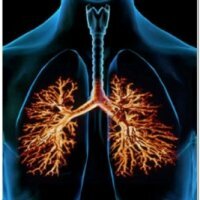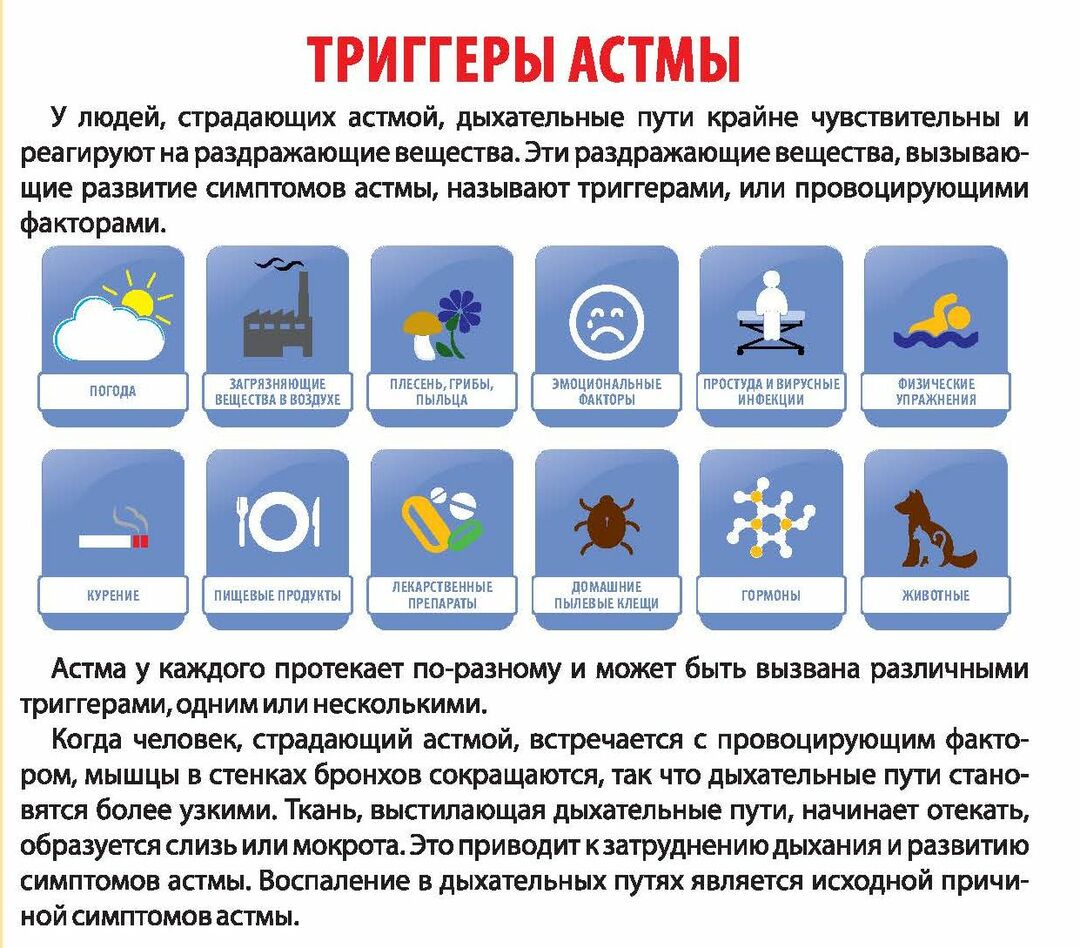Exacerbation of chronic bronchitis

Chronic bronchitis is a diffuse, inflammatory disease of the bronchi, with the characteristic of excessive secretion in the bronchial tree of mucus. The disease often passes with inflammation, as it accompanies a viral infectious disease. The bronchitis itself appears as a reaction of the bronchus to a constant irritation with viral, toxic, chemical substances, in addition, due to the effect of allergens.
More often it is the viral infection that causes the manifestation and aggravation of the disease, depending on the viral agent, a further disease is determined.
Pathogens
There are many causative agents of chronic bronchitis, I would like to consider the most frequent:
- H. influenzae in 30-40% of cases;
- in second place S. Pneumoniae 20-30%;
- the third position behind the causative agent M. Catarrhalis 10-20%;
Then comes the rare types of agents:
- Enterobacteriaceae;
- S. Aureus;
- R. Aeruginosa.
It is noteworthy that the course of the disease and the number of microorganisms depends on the agent itself and the form of exacerbation of the disease. With a moderate form of the disease, there are mainly viral pathogens S. pneumoniae and H. influenzae, mucus during coughing is not so abundant.
With a more acute form of bronchial obstruction, mucus is very abundant, this is evidence that there are viral agents of the species S. aureus and Enterobacteriaceae. Less often, but there are complex cases of bronchiectasis, this indicates the presence of R. Aeruginosa and S. Aureus.
The correct definition of a viral agent is an extremely important time for diagnosis, choice of antibiotics and further treatment.
Possible causes of exacerbations of bronchitis
In the emergence and development of chronic bronchitis, a special role is played by tobacco use, children's respiratory diseases and constant exposure to pollutants. In the presence of these factors, bacteria easily take root in the body, multiply in the form of cytokines and neutrophils and cause inflammatory processes. When the number of the above bacteria reaches a large number, they easily destroy the respiratory tract and damage the mucosa. This causes irritation and constant exacerbation, opening the way for various types of infectious agents.
The most progressive and common agent is H. influenzae, this virus causes:
- to produce large amounts of mucus;
- suppression of mucociliary clearance;
- local destruction of the immunoglobulin occurs;
- he synthesizes the production of histamine and other inflammatory mediators;
- destroys the tracheobronchial epithelium;
- depresses the work of alveolar macrophages and interferes with neutrophil activity.
Symptoms of
- severe dyspnea;
- sometimes shows fever;
- abundant amount of sputum secreted from the bronchi;
- bright signs of bronchial obstruction;
- in the excreted sputum there are signs of pus;
- decompensation of concomitant pathology.
All these signs can be together, in pairs, individually, there may be other signs, it helps determine the type of bronchitis and correctly diagnose it.
Types of exacerbations
Exacerbation of bronchitis( chronic) is of three types.
The first type is followed by:
- the appearance of dyspnea;
- manifestation in sputum purulent discharge;
- a large amount of excreted phlegm.
The second type of chronic bronchitis corresponds to shortness of breath and multiple discharge of mucus.
The third type is accompanied by the above symptoms: severe shortness of breath, plentiful discharge of sputum with purulent manifestations, but one of the symptoms is necessarily added to them:
- is often heard wheezing and whistling when coughing and talking;
- for several days develops an infection of the upper respiratory tract;
- severe cough;
- fever;
- increases heart rate by more than 20%;
- because of blocked airways, breathing is increased by 20%.
Treatment of exacerbations
When a correct diagnosis and a viral agent are set, treatment is prescribed. As a rule, the course includes antibiotics that suppress the infection. Be sure to prescribe drugs that help to withdraw phlegm from the bronchi and expand the bronchial passage for breathing, while not irritating the mucous membrane. Depending on the pathogen, special preparations may be prescribed, however, in any case, tobacco smoke should be avoided.
In addition to the standard treatment, attention should be paid to immunity and to pick up drugs that stimulate immunity. It is very important and useful to make inhalations using herbs, as well as garlic and onion inhalations that remove purulent discharge. The modern course of treatment includes a course of physiotherapy. Treatment in any case should not be abandoned with the first improvements, but smokers do exactly this.



